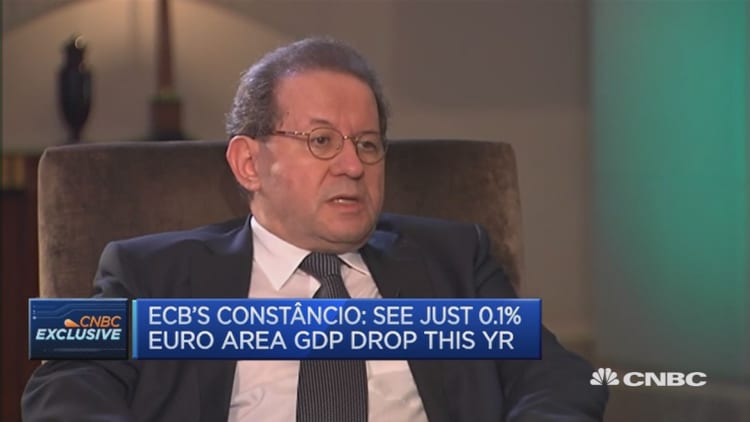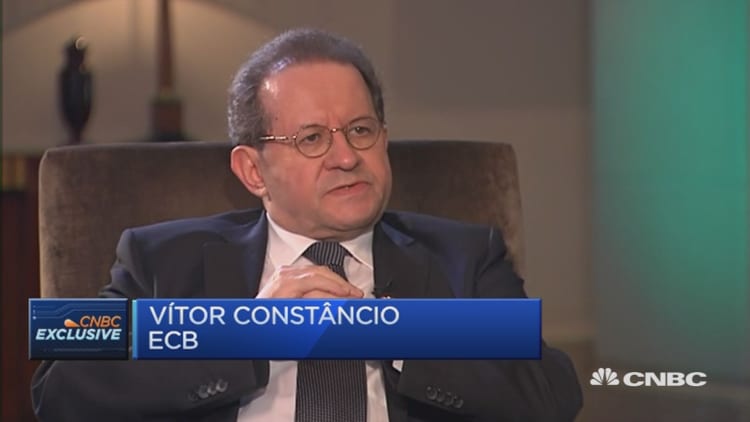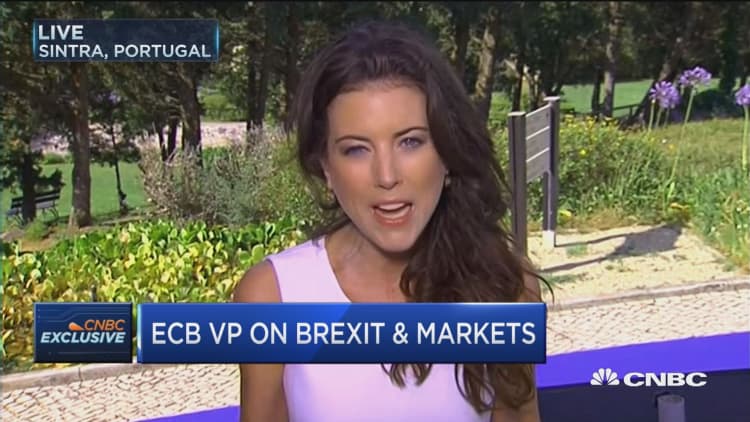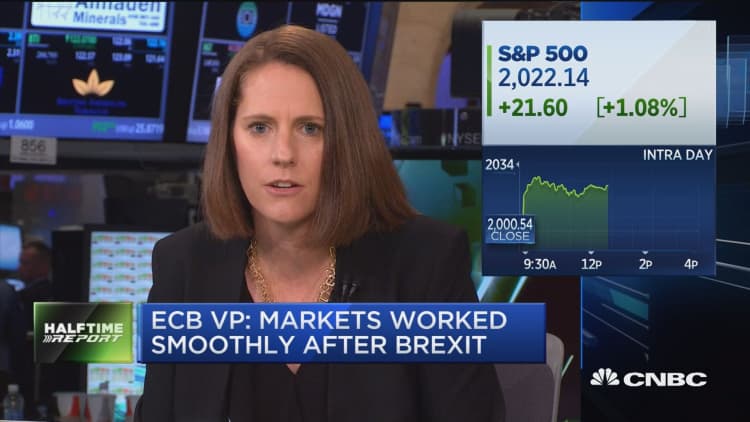




The U.K.'s Brexit vote has not triggered a "Lehman moment" in financial markets, despite the sharp sell-off, the vice-president of the European Central Bank (ECB) told CNBC on Tuesday.
Vítor Constancio denied comparisons between the U.K.'s vote to leave the European Union (EU) and the 2008 collapse of Lehman Brothers that triggered the global financial crisis.
"The reaction to Lehman, as you may recall, was that several markets froze … (with a) big impact all over the world. That was not the case this time," he said.
"The second (point) is that the negative effect on prices in markets was more extended in the case of Lehman that indeed triggered a major international crisis. So the reactions of markets so far do not justify the comparison," the Portuguese economist and politician later added.
Constancio spoke to CNBC on Tuesday from the Portuguese resort town of Sintra, where last week's vote by the U.K. public to quit the EU has disrupted the ECB's usually relaxed annual forum.
A panel with Bank of England Governor Mark Carney and U.S. Federal Reserve Chair Janet Yellen was canceled so ECB President Mario Draghi could attend a meeting of EU leaders in Brussels, according to media reports.
European and U.S. stocks, the euro and sterling pared some losses on Tuesday after the U.K.'s vote to leave the EU caused market turmoil on Friday and Monday. The remain vote was seen winning, but instead, leave triumphed with a narrow margin of 51.9 percent.
European stock indexes
European markets
"Markets always do (overreact) in such circumstances, in particular, because to many people in the market, the result of the referendum came as a surprise. So, as a result, there was certainly overshooting and we saw today that there was a rebound in the markets already," Constancio told CNBC.
"No one knows, of course, how the markets are continuing to evolve, but judging by the reactions and the fundamentals around the problem, hopefully the markets will start to stabilize," he later added.
On Thursday, before the results of the referendum were known, the former prime minister of EU member, Finland, compared the consequences of a "leave" vote to the collapse of U.S. investment bank, Lehman Brothers. And on Friday, former Federal Reserve Chairman Alan Greenspan heralded the worst days for markets since "Black Monday" in 1987.
On Tuesday, Constancio chose instead to focus on the potential hit to the U.K. and European economy.
"The exit of the U.K. will have negative consequences in the coming years for growth in the U.K. in particular … also it is to be expected that after the drop in the pound, this means that international terms, the purchasing power of the U.K. economy, will be permanently lower than otherwise," he told CNBC.
Constancio added that the impact on the 19-country euro area would be much smaller and denied the region would enter recession as a result.
Traders' poll
His words came as analysts ponder whether the Bank of England, the ECB and other major central banks may respond to the market uncertainty by loosening monetary policy in coming months.
"An extension of the ECB's asset-purchase program to at least September 2017 would seem most likely as a next step," Chris Scicluna, head of economic research at Daiwa Capital Markets in London, said in a note on Monday.
"The ECB could also in due course change some of the parameters of the asset-purchase program, for example, by removing the floor on yields, which today prevented the ECB from buying any bunds of maturities up to seven years. And if the weakening of the economic outlook was severe enough to merit further more substantive easing, a further rate cut might be accompanied by a Bank of Japan-style tiered approach to reduce the impact on the banks," he added.

